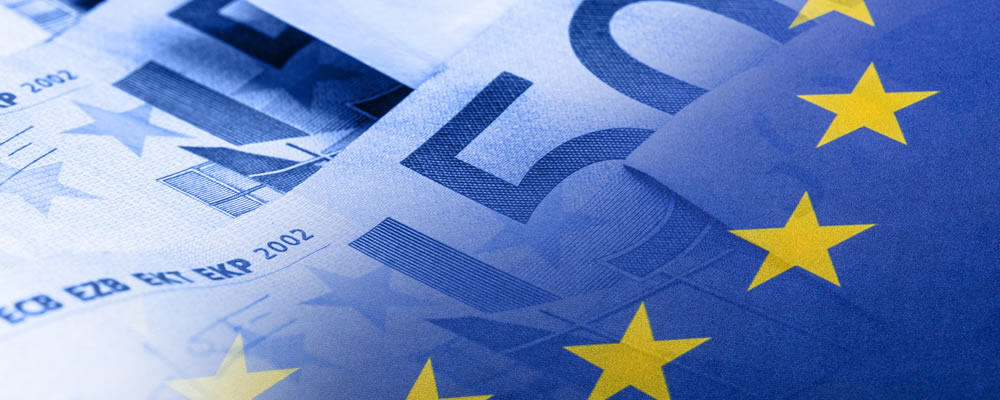- Euro Pound Exchange Rate Attempts Advance – Weighed on by sturdy Sterling
- Preliminary German CPI Impresses – Yearly score on track to hit 0.7% in September
- Forecast: Eurozone’s August Unemployment, September CPI Ahead – Plus German retail sales
- Forecast: Q2 UK Growth Figures Due for Publication – Final Q2 GDP could influence Sterling
The Euro Pound exchange rate edged higher throughout Thursday’s session thanks to better-than-expected Eurozone data, but Sterling held ground on optimistic comments from UK Trade Secretary Liam Fox as he suggested Britain should have free post-Brexit trade with the EU.
EUR GBP has trended below the week’s opening levels of 0.8655 for most of the week, after briefly hitting a three-year-high of 0.8711 on Monday. Despite higher appeal for the Euro on Thursday, the Pound held its ground to stay around key levels of psychological resistance.
Euro (EUR) Bolstered as German Inflation Beats Expectations
Thursday’s Eurozone data was generally impressive to investors, to the point where Germany’s slightly underwhelming September unemployment stats (unemployment worsened by 1k) could be swept under the rug.
Eurozone confidence improved in most prints in September, in many cases more-than-expected.
Economic confidence improved from 103.5 to 104.9, beating expectations to remain the same, while September’s business climate indicator score beat forecasts of 0.05 by jumping from 0.02 to 0.45. Industrial confidence lightened from -4.4 to -1.7.
However, the day’s most impressive Eurozone stat was Germany’s preliminary September Consumer Price Index (CPI) figures, which beat forecasts of further stagnation, hitting 0.1% month-on-month.
Even more impressive was the year-on-year measure, which gained from 0.4%, beat the projected score of 0.6% and clocked in at 0.7%. Reuters reported;
‘German annual inflation accelerated in September, hitting its highest level in 16 months, preliminary data showed on Thursday, in an encouraging sign for the European Central Bank that its ultra-loose monetary policy is working.’
Pound (GBP) Holds Near Key Levels of Resistance
Sterling trended weakly for much of Thursday morning’s session, as the first influential UK prints of the week failed to inspire investor confidence.
While net consumer credit improved from 1.2b to 1.6b in August, this was unable to support the Pound much as August’s mortgage approvals report printed a 21-month-low of 60.1k. The print was projected to fall from 60.9k to 60.2k.
However, later in the morning Sterling was given a slight boost in demand thanks to comments made by British Secretary of State for International Trade, Liam Fox. The BBC reported;
‘The UK’s trade with the European Union will be “at least as free” after Brexit as it is now, Liam Fox says.
The International Trade Secretary said it was in other countries’ interests to avoid tariffs which he said would “harm the people of Europe”.
He also predicted the UK would be a standard-bearer for global free trade and that Brexit represented a “golden opportunity” to forge new links.’
Fox’s optimistic comments, while they explained little and flew in the face of many comments from EU officials, cheered markets and helped Sterling to hold its ground on Thursday.
While the Pound dropped against many rivals, investors were eager to keep the GBP EUR exchange rate near the key psychological resistance level of 1.16 and as a result the Euro’s advances were limited throughout the day.
Euro Pound Exchange Rate Forecast to Plummet if Eurozone CPI Disappoints
Despite an increase in sentiment and demand for the Euro on Thursday, the shared currency could quickly plummet on Friday if September’s Consumer Price Index (CPI) estimate disappoints investors.
Friday morning will also see the publication of German retail sales, which are expected to have improved slightly in August, as well as the Eurozone’s August unemployment rate. Unemployment is projected to have improved from 10.1% to 10.0%, but if it fails to improve the Euro will likely slip.
Investors will have higher focus on Eurozone inflation however, particularly after Germany’s promising preliminary September inflation figures.
Year-on-year inflation is expected to improve from 0.2% to a more solid 0.4% in September, which would improve confidence in the European Central Bank (ECB).
Forecast-beating-figures could lead to a strong uptick in Euro demand. On the other hand, worse-than-expected inflation would lead to a Euro plummet as markets are let down by low inflation throughout the Euro area despite Thursday’s solid German figures.
British data to be published on Friday morning includes final Q2 Gross Domestic Product (GDP) figures.
These key prints are expected to meet preliminary scores of 0.6% quarter-on-quarter and 2.2% year-on-year, but better-than-expected results could give Sterling a significant boost and weigh on the Euro Pound exchange rate’s potential to advance.



